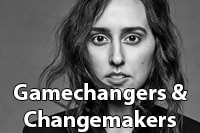
This National Science Week, we’ve been out around Sydney with the Game Changers Show. We’ve talked about people who changed the way we operate – from Archimedes to Elon Musk, Ada Lovelace to Elizabeth Blackburn. But we’ve been being asked the most questions about the final three discoveries we mention in the show. So we’ve collated together some extra information about these discoveries for you!
1. Shubham Banerjee and Braigo.
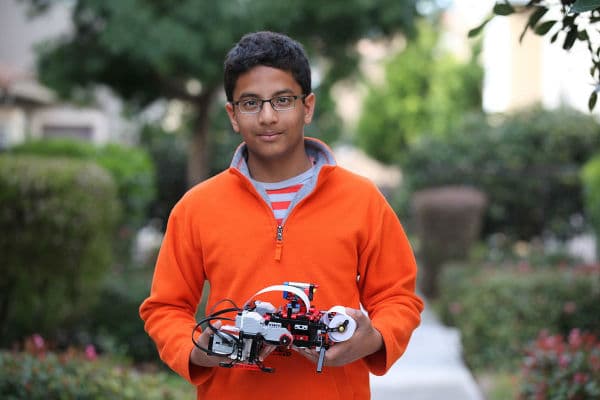
Source: Wikipedia
Shubham saw a problem – that access to information was limited for visually impaired people, because there were barriers to them accessing Braille content. So, armed with an EV3 Mindstorms robot (like the ones we use in our Lego Robotics program) and parts from an old printer, he set about solving that problem. He created it for a Science Fair project when he was 13 years old. With help from his family he went on to found Braigo Labs, to further develop these ideas and make content more readily accessible to the visually impaired.
Further information:
Braigo Labs
2. Miranda Wang and Jeanny Yao breaking down phthalates.
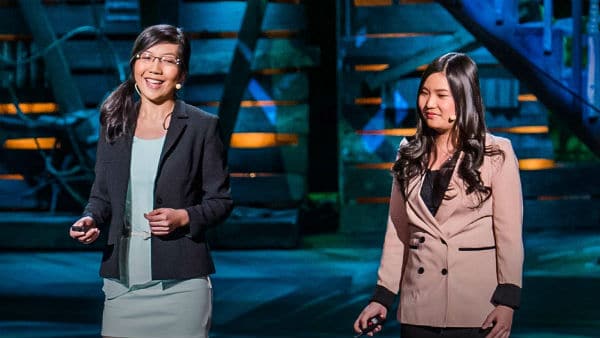
Source: TED
While in 12th grade Miranda and Jeanny went searching for a way to biodegrade plastic — specifically by breaking down phthalates, a harmful plasticizer. They found the answer in a bacteria from their local river.
Plastic pollution in the oceans is a huge global problem, and these two scientists have the beginnings of a viable solution for at least part of it. They have a prototype for breaking down polystyrene into CO2 and water, and they see their technology being used in two ways–first, for landfill and beach cleanups, and, second, to create a secondary product to be used in textile manufacturing.
3. Sabrina “the new Einstein” Pasters
By the time Sabrina Gonzalez Pasterski was 13, she had learned how to fly a plane, built her own aircraft, and flown it solo.
Her application for early admission to MIT was denied and she was rejected by Harvard. She was admitted to MIT off the waitlist and eventually graduated after 3 years as the first girl to win the MIT Physics Orloff Scholarship award, and tied for the top overall GPA at MIT Institute-wide with a 5.0. She is currently working on her PhD at Harvard, where she has been granted complete academic freedom to study whatever she would like.
Further information: Physics Girl
Happy teaching,
Kate O’sullivan
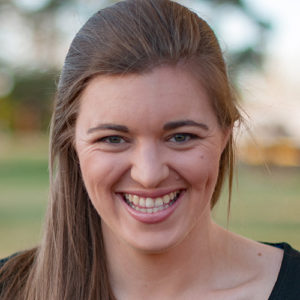
Become a classroom game changer with over 100 free science experiments!
Or read about how we do it at here at Fizzics.
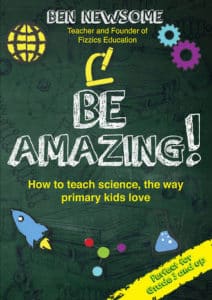























These are simple & really helpful.
I am an Early Childhood Teacher (can you tap into that market too…I already use some of your hints..but my colleagues are often nervous!), working with three-year-olds.
I also work as a Family Literacy Resource Officer in a Melbourne library – running STEAM programs for Prep to Year 3 fortnightly dafter school. In both of my roles, I also try to empower the adults in children’s lives to also experience the joys of STEM learning in everyday life. Often I find that the STEM discussions/experiments/experiences are expected to be delivered by teachers & are not part of home conversations. We do not need to see this as an ADD- ON to our curriculum, but part of our everyday work.
Have also booked Fizzics Education as part of our School Holiday Program & Science Week at the library as well (a few years ago- funds are always an issue) & have had very positive experiences with your company. Keep up the wonderful & very “user-friendly” work.
Many thanks,
Bev
Thank you for your support & kind words Bev!
Yes, science needs to be part of everyday conversation as not only does this support overall science literacy but it also helps people know more about advances in all manner of industries and its subsequent benefits to us all. We definitely run preschool programs too, check out the link here!
https://www.fizzicseducation.com.au/category/schools/preschool-science-visits/
Also, please continue to use the wide variety of free resources on our website.. lots of things to support teaching kids of all ages!
https://www.fizzicseducation.com.au/free-resources/
Have a great end of the year and we hope we can visit again soon.
All the best,
Ben